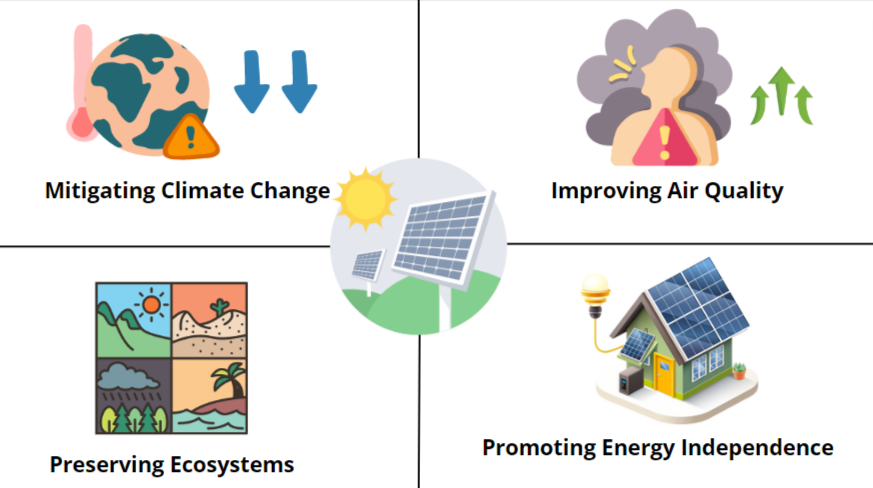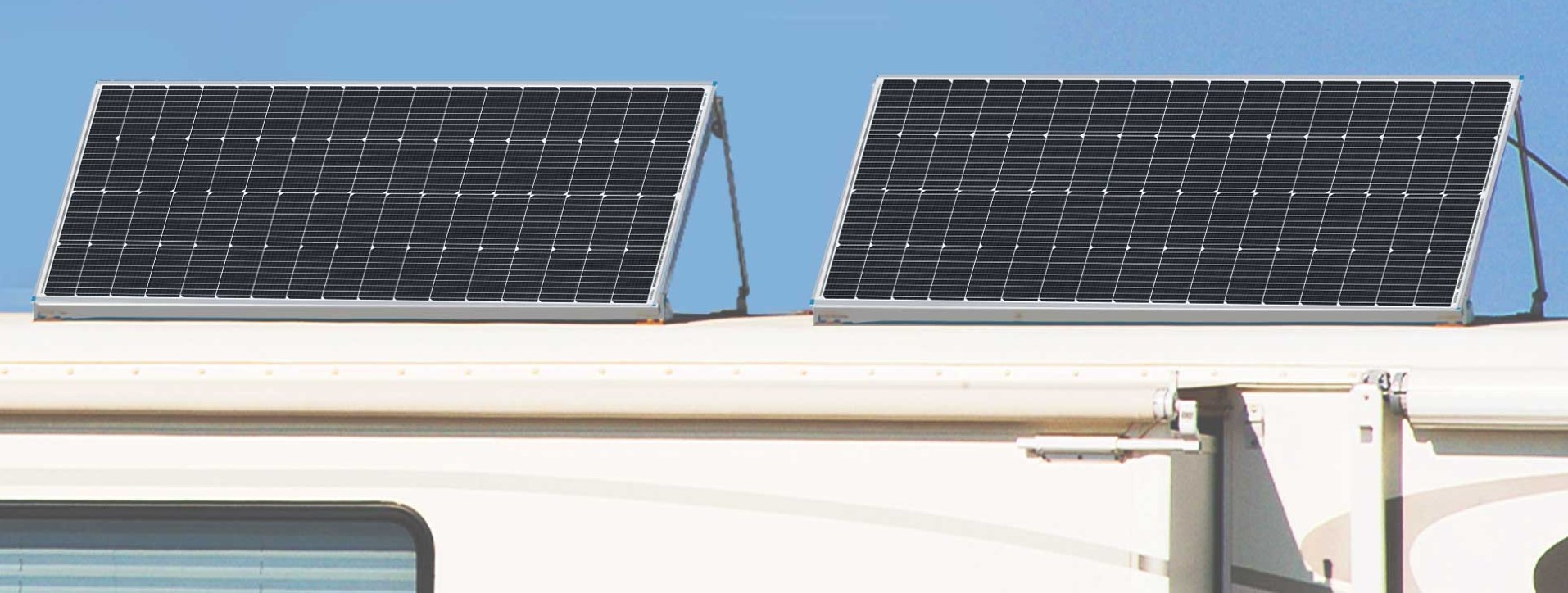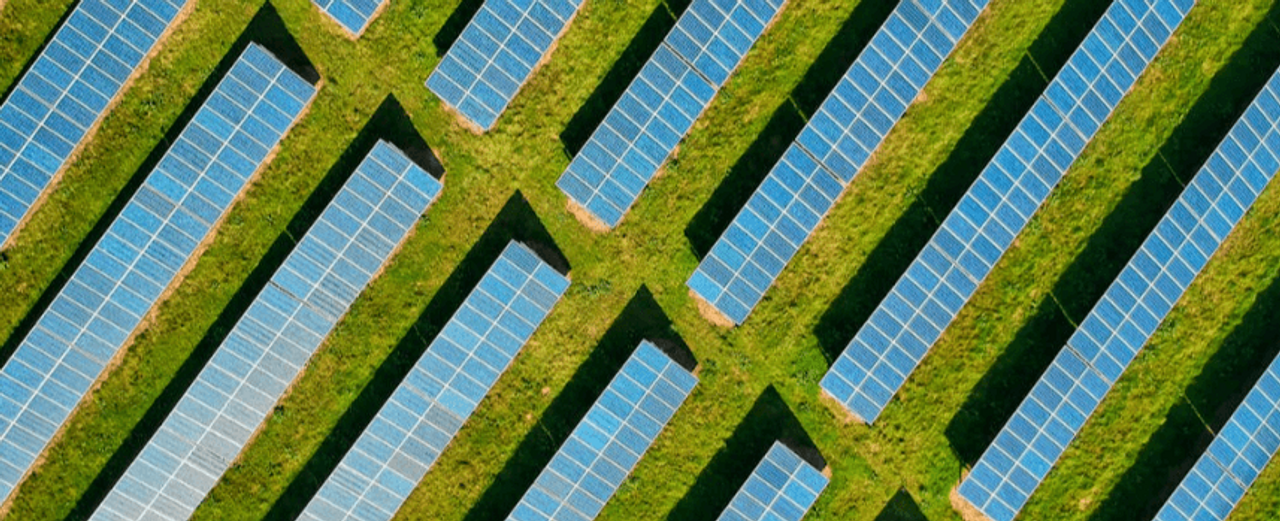What Are the Environment Benefits of Solar Panels & How It Affects
As the world grapples with climate change, these innovative devices harness the sun's energy to produce clean, renewable power without harmful emissions. From reducing greenhouse gases to conserving water resources, solar panels are playing a crucial role in mitigating our environmental impact. This article explores the various ways solar energy systems benefit our environment, highlighting their importance in the transition to a greener future.
Why are Solar Panels Good for the Environment
In an era where climate change and environmental concerns are at the forefront of global discussions, solar panels have emerged as a beacon of hope. These innovative devices harness the power of the sun to generate clean, renewable energy, offering a sustainable alternative to fossil fuels. This shift is particularly crucial in countries like the United States, where, as of 2021, approximately 60% of electricity still comes from fossil fuels such as coal (19%) and natural gas (38%), according to the U.S. Energy Information Administration. These fossil fuel sources significantly contribute to global warming and other environmental issues. Let's explore why solar panels are good for the environment and how they contribute to a greener future.
1. Reduction in Greenhouse Gas Emissions
One of the most significant advantages of solar panels is their ability to generate electricity without producing harmful greenhouse gases. Unlike traditional power plants that burn fossil fuels, solar panels create energy through a clean, emissions-free process. According to the U.S. Environmental Protection Agency (EPA), electricity production accounted for about 25% of total U.S. greenhouse gas emissions in 2021, making it a critical sector for emissions reduction. The National Renewable Energy Laboratory (NREL) estimates that a typical home solar panel system can reduce household CO2 emissions by 3 to 4 tons annually. This is equivalent to planting over 100 trees every year.This reduction in carbon dioxide and other pollutants helps combat climate change and improves air quality.
2. Conservation of Natural Resources
By relying on the sun's abundant and renewable energy, solar panels help preserve finite natural resources like coal, oil, and natural gas. This conservation ensures that these valuable resources remain available for future generations and reduces the environmental damage caused by their extraction and processing. The International Energy Agency (IEA) reports that in 2020, solar PV systems generated 821 TWh of electricity globally, saving approximately 292 million metric tons of coal. To put this into perspective, this amount of coal would fill about 146,000 Olympic-sized swimming pools.
3. Minimal Water Usage
Compared to conventional power generation methods, solar energy systems require very little water to operate. This is particularly crucial in regions facing water scarcity, as it helps conserve this precious resource for other essential uses.
4. Reduced Land Impact
While large-scale solar farms do require significant land area, rooftop solar installations make use of existing structures without any additional land use. This efficient use of space minimizes habitat disruption and preserves natural landscapes.
5. Long-Term Sustainability
Solar panels have a lifespan of 25-30 years, providing clean energy for decades with minimal maintenance. This long-term sustainability reduces the need for frequent replacements and the associated environmental costs of manufacturing and disposal.
How Do Solar Panels Help the Environment
Now that we understand why solar panels are beneficial, let's delve into the specific ways they contribute to environmental protection and sustainability:

1. Mitigating Climate Change
Solar panels play a crucial role in the fight against climate change by reducing reliance on fossil fuels, which are major contributors to global warming. They help decrease the carbon footprints of homes, businesses, and entire communities, supporting the transition to a low-carbon economy. As more solar installations come online, we can expect to see a significant reduction in greenhouse gas emissions on a global scale.
2. Improving Air Quality
By replacing polluting energy sources, solar panels help improve air quality. They eliminate harmful emissions such as sulfur dioxide, nitrogen oxides, and particulate matter, reducing smog and acid rain in urban areas. This leads to lower incidences of respiratory health issues caused by air pollution. Cleaner air results in healthier communities and ecosystems, benefiting both humans and wildlife.
3. Preserving Ecosystems
Solar energy helps protect natural habitats and ecosystems by minimizing the need for destructive resource extraction activities and reducing water pollution associated with traditional power generation. It also decreases the risk of environmental disasters like oil spills or nuclear accidents. Preserving biodiversity is crucial for maintaining the delicate balance of our planet's ecosystems.
4. Promoting Energy Independence
Solar panels contribute to energy independence, which has indirect environmental benefits. They reduce the need for long-distance energy transmission, which can cause habitat fragmentation, and decrease reliance on imported fossil fuels, thereby reducing transportation-related emissions. Encouraging local energy production fosters community engagement in sustainability efforts, leading to a more resilient and environmentally friendly power grid.
5. Advancing Green Technology
The widespread adoption of solar panels drives innovation in green technology. This encourages research and development in energy storage solutions, promotes advancements in solar cell efficiency and durability, and fosters the growth of related industries, such as electric vehicles and smart grids. These technological advancements accelerate the transition to a more sustainable future across various sectors.
Can You Go Off-Grid with Solar
Yes, you can go off-grid with solar energy. Off-grid solar systems allow you to generate and store your own electricity, providing complete energy independence. These systems typically include solar panels, batteries, inverters, and charge controllers to store excess energy for use during cloudy days or at night.
Going off-grid with solar has several benefits. It reduces your reliance on utility companies, significantly lowers energy bills, and minimizes your carbon footprint. Additionally, it provides a reliable power source in remote or rural areas where grid access is limited or unavailable. Off-grid solar systems can also enhance your resilience during power outages, ensuring a continuous energy supply.
For those considering an off-grid solar solution, Renogy stands out as a superior choice. Renogy offers high-quality solar panels, efficient inverters, and advanced battery storage options designed to meet various energy needs. Their comprehensive kits and user-friendly installation guides make it easier to transition to off-grid living. With Renogy, you can achieve energy independence, sustainability, and peace of mind knowing you have a reliable and efficient off-grid solar system.

Frequently Asked Questions
1. How does solar photovoltaic energy differ from solar thermal energy?
Solar photovoltaic (PV) energy converts sunlight directly into electricity using semiconductor cells. In contrast, solar thermal energy captures sunlight to generate heat, which can be used directly or converted into electricity through a steam turbine. PV systems are primarily used for electricity generation, while solar thermal systems are often used for heating or in large-scale power plants.
2. How has solar technology changed?
Solar technology has evolved significantly over the past few decades. Since the 1970s, solar panel efficiency has increased from around 6% to over 22% for commercial panels in 2023. Costs have also plummeted, with the price of solar PV modules dropping by approximately 99% from 1976 to 2020. Innovations such as bifacial panels, thin-film technology, and improved energy storage have expanded solar applications and enhanced reliability .
3. How long does it take for a solar panel to become carbon neutral?
A solar panel typically becomes carbon neutral within 1 to 3 years of operation. This timeframe depends on factors like location, panel efficiency, and manufacturing methods. Once carbon neutral, solar panels continue to provide clean energy for the remainder of their lifespan, significantly reducing greenhouse gas emissions compared to traditional energy sources.
Conclusion
The environmental benefits of solar panels are substantial and far-reaching. By reducing greenhouse gas emissions, decreasing air pollution, and conserving natural resources, solar energy plays a crucial role in combating climate change and preserving the environment. Advances in technology and efficient recycling methods further enhance these benefits. As solar adoption grows, we move closer to a sustainable future with cleaner air, reduced carbon footprints, and greater energy independence. Embracing solar energy is not only an investment in renewable power but also a commitment to protecting our planet for future generations.











